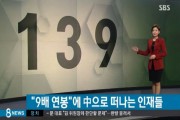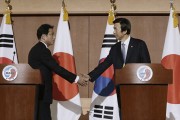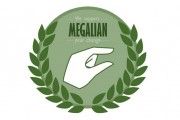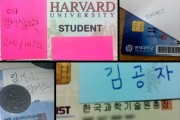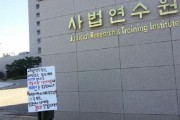South Korea is known for its emphasis on education, but is this going too far?
South Korea has no end to “elite” institutions, including specialized high schools, international schools, and english language schools for students hoping to get a leg up on the fierce competition to get into brand name schools and eventually, land a job in a large conglomerate. Instead of normal institutions, these elite schools are pursued by parents hoping to give their kids access to another “elite” group of kids, who will serve as useful social connections for their career. The academic elitism that was prevalent in universities and high schools is now trickling down to preschools, and many South Korean parents believe that the path to a successful career starts with getting into an “elite” preschool.
Article from Kukmin Ilbo:
Academic Elitism in Preschools
40-year-old Choi, who lives in Cheongdam-dong, Gangnam-gu, Seoul, is worried about her 5 year-old daughter’s entrance to preschool next year. Through the “chaos of the preschool lottery system,” her daughter won a spot at the local preschool. In making preparations for her daughter to drop out of the ordinary preschool, Choi paid in advance the entrance fee at the neighboring english language preschool in Shinsa-dong. Meanwhile, among the local mothers, she heard, “The community created in the preschool will result in elite connections later on.” They even said “If your kid doesn’t go to the expensive english language preschool here, when she goes to elementary school, she will feel alienated.” The monthly tuition for the english language preschool is 900,000 won, which is four times higher than the cost for an ordinary preschool, but eventually, Choi made the hard decision to abandon the ordinary preschool that her daughter had been accepted into.
The rampant academic elitism in our society in some elite high schools and special purpose high schools has already stealthily trickled down to preschools. In the past, you could obtain elite treatment just by going to a good college, but now you need to take “prestigious courses” from english language preschools, international elementary and middle schools, international high schools and special purpose high schools to become part of the “pure elite.” The future we once joked about where people would have to fill out their educational background from preschool through university on employment forms is now approaching.
Ordinary elementary schools are marginalized: the new system of ranking that stars from preschools becomes more segmented when they enter elementary school. In the 1980’s-90s, some overeager parents used false addresses and other methods in order to send their kids to Gangnam and Jongro area private elementary schools. The majority of parents are relieved when their kids are assigned to a school near home. The kids in the neighborhood they used to play with would become their elementary school friends, and it was common for the majority to attend the same middle school. However, in the 21st century, recognition of achievement and a sharp increase in international schools admitting local students has led to the perception that sending one’s child to an ordinary elementary school means the parents don’t care as much about their child’s education.
Some parents also argue about the hierarchy between international schools. Ms. A, who lives in Pohang in Kyungbok, decided to send her five year old daughter to an international school near her house, but recently, she’s changed her mind and will send her daughter to Jeju island. This is because she heard that the sons and daughters of the upper class are flocking to international schools in Jeju where the domestic admission policies are more relaxed. Her friend also advised her, “If you want to build a good “network” for your kid, you have to send her to Jeju.” The schools Ms. A is looking at require annual tuition rates of 12,000,000 ~ 1,900,000 won ($10,922 – $17,293), but she “can bear this for the sake of my child’s future.”
If her kid can’t get into the international school, she can also try to get into the english language preschool as the next best option. Ms. B, who lives in Songpa-gu, Seoul has a seven year old daughter who was assigned to the public elementary school near their apartment complex. Circumstances didn’t allow her to send her daughter to the international school farther away, so she registered her daughter for afternoon classes at the english language preschool. There, they offer extracurricular activities such as horseback riding, and flute. Ms. B said, “The majority of english language preschools are similar to hagwons, so many kids continue attending them even after beginning elementary school.”
The tuition rates are more expensive than attending college, but there are no open seats. Tuition for international schools is surpassing that of middling private schools. On the afternoon of Dec 10th, at a French international school. The majority of students exiting the school building are Korean kids. The school has an entrance fee of 3,000,000 won ($2,730), and an annual registration fee of 10,300,000 won ($9,375). Including dormitory fees of 510,000 won ($464) per month and incidentals, parents can rack up an annual bill of 15,000,000 won ($13,653).
Despite the price tag, the popularity is such that students cannot get in because there are no available spaces. The school restricts the number of domestic students to 30% of the school’s total enrollment, but last year, in an audit of the Education Office, it was discovered that 91 out of 211 enrolled students (43%) were illegally admitted. The majority of such cases were the sons and daughters of doctors and lawyers in the Gangnam-gu and Jongru-gu areas who forged documents so their kids could enter the schools.
This phenomenon started in high schools. A policy abolishing special purpose and autonomous private high schools proposed by Cho Hwi-won, the Superintendent of Education in Seoul City, started in the same context. As the number of special purpose high schools and autonomous private high schools overflow, students who enter regular high schools are stigmatized as “dumb” even before they begin their exam life.
The reason why parents are so eager is because of the “good alumni connections.” In some preschools, parents are the ones who periodically arrange gatherings for the alumni after graduation, and force their kids to interact. Education critic Lee Beom says, “Universities continue to create admission criteria for ‘global talents’ where students from international schools show strength, and it’s also easier for them to enter large export-driven conglomerates. This resulted in an extreme situation in education.” He also points out, “early education has become a precondition to join the establishment and survive in the employment competition.”
Comments from Naver :
ltk1****:
Sad, this is so sad. If this is the case, what’s the point of encouraging childbirth?
prad****[Responding to above]:
Only in the Kangbuk area where private schools are concentrated, they might send kids to these schools, thinking they are on par with Gangnam public school. However, in Mokdong and Gangnam, most parents send their kids to public schools. If you go to a private school in Gangnam, you will have no friends in the neighborhood, and you have to get up at 6 in the morning because the school is so far. Recently, mothers have become smarter, and are preferring to send their kids to public schools that finish early(when school is over, they send their kids to the art, music and physical education, and english and science hagwons). The reason parents still try to enter their kids in the lottery for private schools is because they hear there are many crazy teachers in public schools and think that the private school will pay closer attention to their kids like preschools do.
g339****:
These crazy ahjumma [older women]. How pathetic. This is a Korea in which people’s dreams and hopes are disappearing…
kiss****[Responding to above]:
Wait, why are there so many idealists? The reality is war, but everyone can work together to be well-off? I have to step on people who are worse than me to be rich. What are they all doing when they know this? The way I see it, they seem to be jealous.
gytl****:
Sigh they have to suffer from this kind of education beginning in preschool.
glas****:
What a sad reality…
tyeu****:
Sigh they’re just kids though.
show****:
What are these elite courses? They’re courses for people below those born with gold spoons in their mouths, who work until they’re in their mid-40s, then retire.
pag0****:
We should somehow stop mothers from getting overly involved in their kids’ lives? They’re one of the reasons ruining our country’s education system.
alsr****:
Even if I don’t know the parent’s perspective, from my perspective as a high schooler, attending hagwons [academy or cram school] in elementary school wasn’t worth it. It’s not too late to start attending them in middle school, so please let them have fun while they still can.
ggog****:
In Seoul, there are only two international middle schools, and the capacity for each is a little over one hundred people. Exactly how many parents are like that in the article? Why do they write the article as if it is the overall societal trend? The 99% of parents like me focus on our kids’ health and personality as we raise them, as well as educating them on proper habits. Every time I see these articles in the morning, I feel out of place, and I’m not in a good mood.
bill****:
It seems the reporter’s article was meant to instigate readers.
qor5****:
After all that fuss, the only thing that will remain is their relationships with high school classmates.
fant****:
At this rate, soon they will classify delivery rooms as obstetrics keke Damn collectivism, sigh…These people can’t think of themselves outside the herd mentality.
seon****:
Crazy people, the child’s personality is all the parents’ fault!
blue****:
Wow, I’m speechless. These people create a society based on one’s educational background, and later on, wouldn’t they blame the country…

